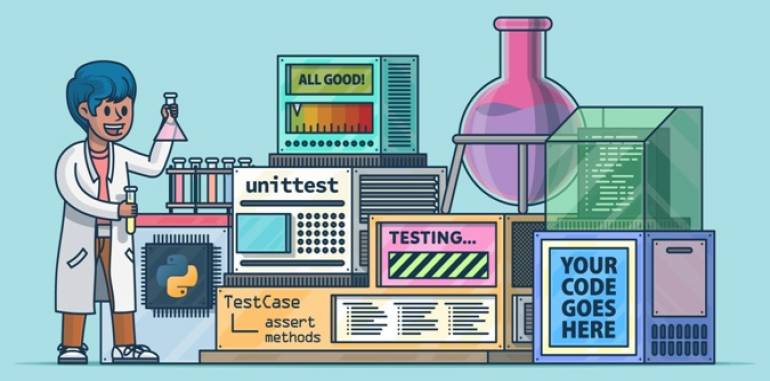Product Testing

Testing
WHAT IS
TESTING?
Testing is the process of evaluating a system,
product, or component to ensure that it performs as expected. It involves
verifying that the item meets specified requirements, identifying defects or
errors, and assessing the overall quality before its release or implementation.
Testing can apply to various fields such as software, hardware, materials, and
products in different industries.
TYPES
OF TESTING:
1. Software Testing: Ensures that a software
application functions as intended without bugs.
2. Product Testing: Verifies that a product meets
design, safety, and performance standards.
3. Material Testing: Evaluates the properties of raw materials, such
as strength, durability, and resistance to environmental factors.
4. Medical Testing: Includes clinical and diagnostic testing to
ensure the safety and effectiveness of medical devices or treatments.
IMPORTANCE
OF TESTING
1. Ensures Quality: Testing helps ensure that a
product, system, or software meets the required standards of quality before it
is released to the market.
2. Identifies Defects: Testing helps detect defects or issues early,
reducing the cost of fixing problems later.
3. Increases Customer
Satisfaction: By ensuring that a product
performs as expected, testing contributes to a positive user experience.
4. Ensures Safety and Compliance: In regulated industries
(e.g., pharmaceuticals, medical devices), testing is essential to ensure
compliance with laws and standards.
5. Minimizes Risks: Proper testing helps in identifying and
mitigating risks associated with failures in products or systems.
WHAT IS
NABL TESTING?
NABL
(National Accreditation Board for Testing and Calibration Laboratories) testing refers to testing that is conducted in
laboratories accredited by NABL. NABL is an autonomous body under the
Department for Promotion of Industry and Internal Trade (DPIIT), Government of
India, responsible for accrediting testing and calibration laboratories. NABL
accreditation ensures that a laboratory operates in accordance with
international standards, providing reliable, accurate, and traceable testing
results.
WHY IS
NABL TESTING IMPORTANT?
1. Accurate Results: NABL-accredited labs follow internationally
recognized standards (ISO/IEC 17025), ensuring that the test results are
precise and reliable.
2. Global Recognition: NABL accreditation is recognized
internationally, which enhances the credibility of test reports for global
trade and regulatory purposes.
3. Improved Quality Assurance: Labs accredited by NABL have demonstrated
competence, enhancing the overall quality assurance of products and processes.
4. Regulatory Compliance: Many industries and regulators require that
testing be done in NABL-accredited labs to ensure adherence to safety, health,
and environmental standards.
5. Consumer Confidence: NABL-accredited testing provides assurance to consumers and stakeholders that products have been tested under stringent and recognized standards.
Service Related FAQ
What is product testing?
Product testing is the process of evaluating a product's performance, quality, and safety by testing it in real-world conditions or controlled environments. It helps ensure the product meets the standards before reaching the market.
Why is product testing important?
Product testing is crucial to ensure: • Safety and reliability • User satisfaction • Regulatory compliance • Durability and performance • Identifying potential issues or improvements
How are products tested?
Products can be tested in various ways, including: • Lab testing: Conducted in a controlled environment to analyze specific characteristics (e.g., strength, safety). • Field testing: Evaluates the product in real-life situations. • Consumer testing: A group of target users tests the product for feedback on usability and performance. • A/B testing: Comparing two versions of a product to determine which performs better.
Who conducts product testing?
Product testing is typically done by: • In-house teams within a company • Third-party testing organizations • Focus groups or test panels made up of consumers • Independent experts or laboratories
How long does product testing take?
The duration depends on the type of product and the scope of testing. Some products can be tested in a few weeks, while others might require months of testing, especially if they involve complex safety assessments or regulatory approvals.
What types of products are tested?
Nearly any type of product can undergo testing, including: • Electronics (e.g., phones, laptops) • Clothing and textiles • Food and beverages • Health and beauty products • Automotive parts • Household items • Toys and baby products
What are the different types of product tests?
Common types include: • Safety tests (e.g., checking for harmful chemicals or risks) • Performance tests (e.g., durability, battery life, usability) • Usability tests (e.g., how easy and intuitive it is for the user) • Market tests (e.g., focus groups, consumer feedback) • Compliance tests (e.g., ensuring the product meets industry standards)
Can consumers participate in product testing?
Yes! Many companies invite consumers to participate in product testing through online panels, focus groups, or direct consumer feedback. Some even offer free products or compensation for their time.
What are the benefits of product testing?
• Identifying flaws or design issues before launch • Increasing customer satisfaction by understanding consumer needs • Reducing the risk of product recalls or lawsuits • Gaining a competitive advantage with a high-quality product
How do companies select test participants?
Companies typically look for participants who represent their target audience. This could be based on factors like age, location, interests, or specific product needs. Participants may be selected through online sign-ups, social media calls, or market research firms.
What happens after testing?
After product testing, companies analyze the data collected, make necessary improvements, and adjust the design or production process. In some cases, further rounds of testing may be necessary before the product is launched.
What are the ethical considerations in product testing?
Ethical product testing involves: • Ensuring participants' privacy and confidentiality • Obtaining informed consent from testers • Avoiding misleading or harmful tests • Offering fair compensation to testers when applicable
How can I get involved in product testing?
• Sign up for product testing programs on company websites • Join consumer testing panels • Look for legitimate product testing websites that connect testers with brands • Follow brands on social media for announcements about new tests